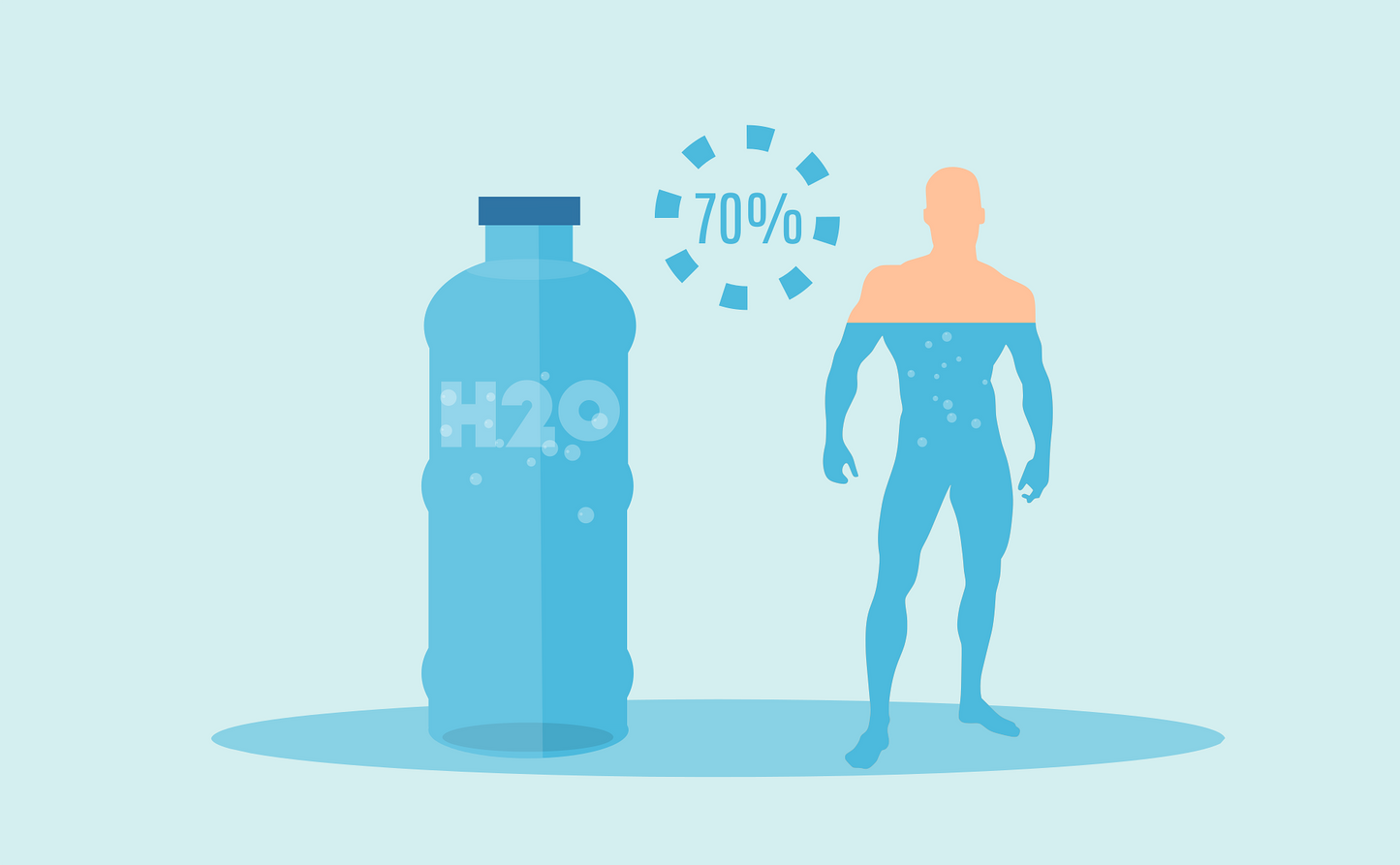
Our body is made up of up to 70% water, and adequate hydration is essential for health. However, it’s not just about water—electrolyte intake is also important for optimal body function. Electrolytes such as sodium, potassium, calcium, and magnesium are involved in numerous physiological processes.
Warning Sign: Dark Urine!
Dark urine is often a sign of poor hydration and can indicate that the body is lacking fluids. Electrolytes are crucial for regulating the body’s water balance. A deficiency prevents the body from effectively retaining water, leading to dehydration. In this state, the kidneys try to conserve water, making urine more concentrated and darker in color. Dehydration impairs physical and mental performance and places long-term strain on the kidneys. Currently, 27% of Germans drink too little water. Make sure you’re not part of this group!
What Are Electrolytes and What Are Their Functions?
Electrolytes are electrically charged minerals that perform essential functions in the body, such as transmitting signals between nerve cells. These particles are dissolved in bodily fluids and help regulate the movement of fluids in and out of cells. They are also vital components of the blood. A balanced electrolyte level is crucial for the following bodily functions:
Regulation of fluid balance: Electrolytes help maintain the balance between fluids inside and outside of cells.
• Support for nerve and muscle function: They enable the transmission of nerve impulses and are essential for muscle function.
• Maintenance of acid-base balance: Electrolytes stabilize the body’s pH and create a healthy environment for biochemical processes.
Why Are Electrolytes Important for Our Performance?
During intense physical activity, we lose not only water but also important electrolytes through sweat. A lack of these minerals can lead to fatigue, muscle cramps, and decreased concentration.
Maintaining a balanced electrolyte level supports physical and mental performance, aids recovery, and reduces the risk of exercise-related issues. After sports, the most common electrolyte deficiencies include sodium, potassium, and magnesium, which are key for fluid balance and muscle function.
What Are the Consequences of an Electrolyte Deficiency?
Fatigue and exhaustion
• Muscle cramps
• Headaches
• Reduced mental performance
• Dehydration
What Can I Do?
For most people, a balanced diet and adequate fluid intake are enough to regulate electrolyte levels. However, during intense physical activity or in hot climates, additional electrolyte intake may be beneficial.
One way to support our electrolyte balance is through the consumption of electrolyte drinks. Before exercise, they help to replenish electrolyte stores, ensuring optimal muscle and cardiovascular performance. Our performance drink ACCELERAID contains concentrated electrolytes, along with nutrients to promote muscle blood flow.
After exertion, or during long workouts, the loss of electrolytes through sweating should be quickly replenished. That’s why our regeneration drink REGENERAID contains a high-dose electrolyte solution, along with antioxidants and amino acids to support recovery and rapidly replenish electrolyte stores.
- "Water, hydration, and health," Nutrition Reviews, Oxford Academic (Oxford Academic).
- "Can Dehydration Affect Your Kidneys?" National Kidney Foundation (National Kidney Foundation).
- "Healthy Hydration and Your Kidneys," National Kidney Foundation (National Kidney Foundation).
- "Hydration for kidney health," Kidney Research UK (Kidney Research UK).
- Techniker Krankenkasse (TK). (2019). Trinkstudie 2019: Wie gesund ist Deutschland?.

